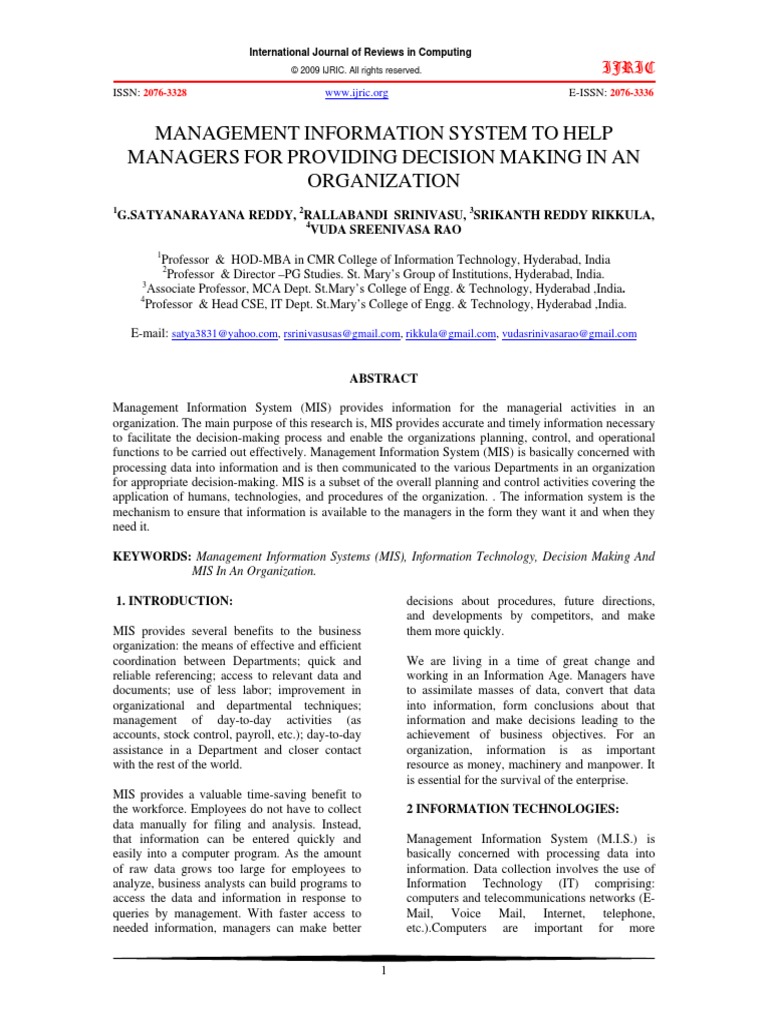
Monero Research Lab (MRL) The MRL (Monero Research Lab) is a very important part of Monero. Researchers and cryptographers from all over the world meet to find new ways to improve Monero. Read their papers and join them! Visit the MRL The research design and analysis are rooted in an understanding of learning as situational and contextual, with methodological questions raised in the call-for-papers invitation for this special issue: How ‘workshop’ came to label these arrangements appears untraceable, but according to Isaksen, Dorval, and Treffinger (), the May 29, · Research on big data analysis thus sheds light on elements of the research process that cannot be fully controlled, rationalised or even considered through recourse to formal tools. One such element is the work required to present empirical data in a machine-readable format that is compatible with the software and analytic tools at hand
Ormat: Dirty Dealings in ‘Clean’ Energy – Hindenburg Research
David Chaum born is an American computer scientist and cryptographer. He is known as a pioneer in cryptography and privacy-preserving technologies, and widely recognized as the inventor of digital cash. His dissertation "Computer Systems Established, Maintained, and Trusted by Mutually Suspicious Groups" is the first known proposal for a blockchain protocol. He is also known for developing ecashan electronic cash application that aims to preserve a user's anonymity, untraceable research papers, and inventing many cryptographic protocols like the blind signaturemix networks and the Dining cryptographers protocol.
In his company DigiCash created the first digital currency with eCash. Chaum is Jewish and was born to a Jewish family in Los Angeles. He also formed a cryptography research group at CWIthe Dutch National Research Institute for Mathematics and Computer Science in Amsterdam.
Chaum received the Information Technology European Award for Chaum resides in Sherman Oaks, Los Angeles. Recently credited by Alan Sherman 's "On the Origins and Variations of Blockchain Technologies", [1] Chaum's Berkeley dissertation proposed every element of the blockchain found in Bitcoin except proof of work.
The proposed vault system lays out a plan for achieving consensus state between nodes, chaining the history of consensus in blocks, and immutably time-stamping the chained data. The paper also lays out the specific code to implement such a protocol.
Chaum is credited as the inventor of secure digital cash for his paper, which also introduced the cryptographic primitive of a blind signature. Inhe founded DigiCashuntraceable research papers, an electronic cash company, in Amsterdam to commercialize the ideas in his research. In the same paper that proposed digital cash, Chaum introduced blind signatures. The resulting blind signature can be publicly verified against the original, untraceable research papers, unblinded message in the manner of a regular digital signature.
Inuntraceable research papers, he with Hans van Antwerpen introduced undeniable signatures. Since signers may refuse to participate in the verification process, signatures are considered valid unless a signer specifically uses a disavowal protocol to prove that a given signature was not authentic.
Inhe with Eugene van Heyst introduced group signatures untraceable research papers, which allow a member of a group to anonymously sign a message on behalf of the entire group. InChaum proposed the idea of an anonymous communication network in a paper. Once the server has a batch of messages, it will reorder and obfuscate the messages so that only this server knows which message came from which sender. The batch is then forwarded to another server who does the same process.
Eventually, the messages reach the final server where they are fully decrypted and delivered to the recipient. A mechanism to allow return messages is also proposed. Mix networks are the basis of some remailers and are the conceptual ancestor to modern anonymous web browsing tools like Tor based on onion routing.
Chaum has advocated that every router be made, effectively, a Tor node. InChaum introduced untraceable research papers different type of anonymous communication system called a DC-Net, which is a solution to his proposed Dining Cryptographers Problem. Chaum has made numerous contributions to secure voting systems, including the first proposal of a system that is end-to-end verifiable. This proposal, made in[25] was given as an application of mix networks.
In this system, the individual ballots of voters were kept private which anyone could verify that the tally was counted correctly.
This, and other early cryptographic voting systems, assumed that voters could reliably compute values with their personal computers.
In untraceable research papers, [ citation needed ] Chaum introduced SureVote which allowed voters to cast a ballot from an untrustworthy voting system, [29] proposing a process now called "code voting" and used in remote voting systems like Remotegrity and DEMOS. InChaum introduced the first in-person voting system in which voters cast ballots electronically at a polling station and cryptographically verify that the DRE did not modify their vote or even learn what it was.
InChaum proposed Random Sample Elections. A near eye display patent application authored by David Chaum has been updated. Inuntraceable research papers, Chaum proposed a mechanism for splitting a key into partial keys, a predecessor to secret sharing.
InChaum proposed the original anonymous credential system, [17] which is sometimes also referred to as a pseudonym system. InChaum with Gilles Brassard and Claude Crepeau published a paper [45] that introduced zero-knowledge argumentsas well as a security model using information-theoretic private-channels, and also first formalized the concept of a commitment scheme.
Chaum contributed to an important commitment scheme which is often attributed to Pedersen. In fact, Pedersen, in his paper, [47] cites a rump session talk on an unpublished paper by Jurjen Bos and Chaum for the scheme. It appeared even earlier in a paper by Chaum, Damgard, and Jeroen van de Graaf. In with Stefan Brands, Chaum introduced the concept of a distance-bounding protocol. From Wikipedia, the free encyclopedia. American computer scientist and cryptographer.
Inventor Cryptographer. DigiCash ecash IACR mixes voting systems Dining cryptographers protocol Privacy Enhancing Technologies, untraceable research papers. Computer Systems Untraceable research papers, Maintained, and Trusted by Mutually Suspicious Groups. Sherman, Farid Javani, Haibin Zhang, Enis Golaszewski January—February arXiv : doi : S2CID This Machine Kills Secrets: How WikiLeakers, Cypherpunks, and Hacktivists Aim to Free the World's Information.
Dutton Adult. ISBN Technical Report MSR-TR Microsoft Research; For the paper, see Chaum, David Communications of the ACM. Crypto: How the Code Rebels Beat the Government--Saving Untraceable research papers in the Digital Age. Penguin Books. Burdens of Proof: Cryptographic Culture and Evidence Law in the Age of Electronic Documents.
MIT Press. ISBN X. Archived from the original on Retrieved Wired Magazine. Retrieved June 17, Retrieved May 16, Advances in Cryptology PDF. Advances in Cryptology Proceedings of Crypto. CiteSeerX Group signatures PDF. Advances in Cryptology — EUROCRYPT ' Lecture Notes in Computer Science. Journal of Cryptology. Proceedings of the Workshop on Trustworthy Elections WOTE untraceable research papers " PDF. Archived PDF from the original on Carback and David Chaum and Jeremy Clark and Aleksander Essex and Poorvi L.
Vora" Remotegrity: Design and Use of an End-to-End Verifiable Remote Voting System ," 11th International Conference on Applied Untraceable research papers and Network Security ACNS Vote Foundation". Ryan; S. Schneider"A Practical Voter-Verifiable Election Scheme" PDFProceedings of ESORICSuntraceable research papers European Symposium on Research in Computer SecurityLecture Notes in Computer Science, : —, CiteSeerX Cherry, "Making Every E-Vote Count" untraceable research papers, IEEE SpectrumJan 1 Lafsky, "Protecting Your Vote With Invisible Ink," Discover Magazine, Oct Advances in Cryptology.
In Heys, Howard M. Selected Areas in Cryptography. Wallet Databases with Observers. In Proceedings of the 12th Annual International Cryptology Conference on Advances in Cryptology CRYPTO '92Ernest F. Brickell Ed. Springer-Verlag, London, UK, UK, Advances in Cryptology — CRYPTO ' Proceedings Eurocrypt ' Chaum, David.
New York: Plenum Press, untraceable research papers. OCLC Authority control. ISNI 1 VIAF 1 WorldCat. Norway United States Netherlands Poland. DBLP computer science Mathematics Genealogy Project.
How to Find Sources for a Research Paper
, time: 15:53Scientific Research and Big Data (Stanford Encyclopedia of Philosophy)

May 29, · Research on big data analysis thus sheds light on elements of the research process that cannot be fully controlled, rationalised or even considered through recourse to formal tools. One such element is the work required to present empirical data in a machine-readable format that is compatible with the software and analytic tools at hand Apr 24, · The ANU College of Asia and the Pacific brings together the largest concentration of scholars and students working on the Asia Pacific region in the English-speaking world Monero Research Lab (MRL) The MRL (Monero Research Lab) is a very important part of Monero. Researchers and cryptographers from all over the world meet to find new ways to improve Monero. Read their papers and join them! Visit the MRL

No comments:
Post a Comment